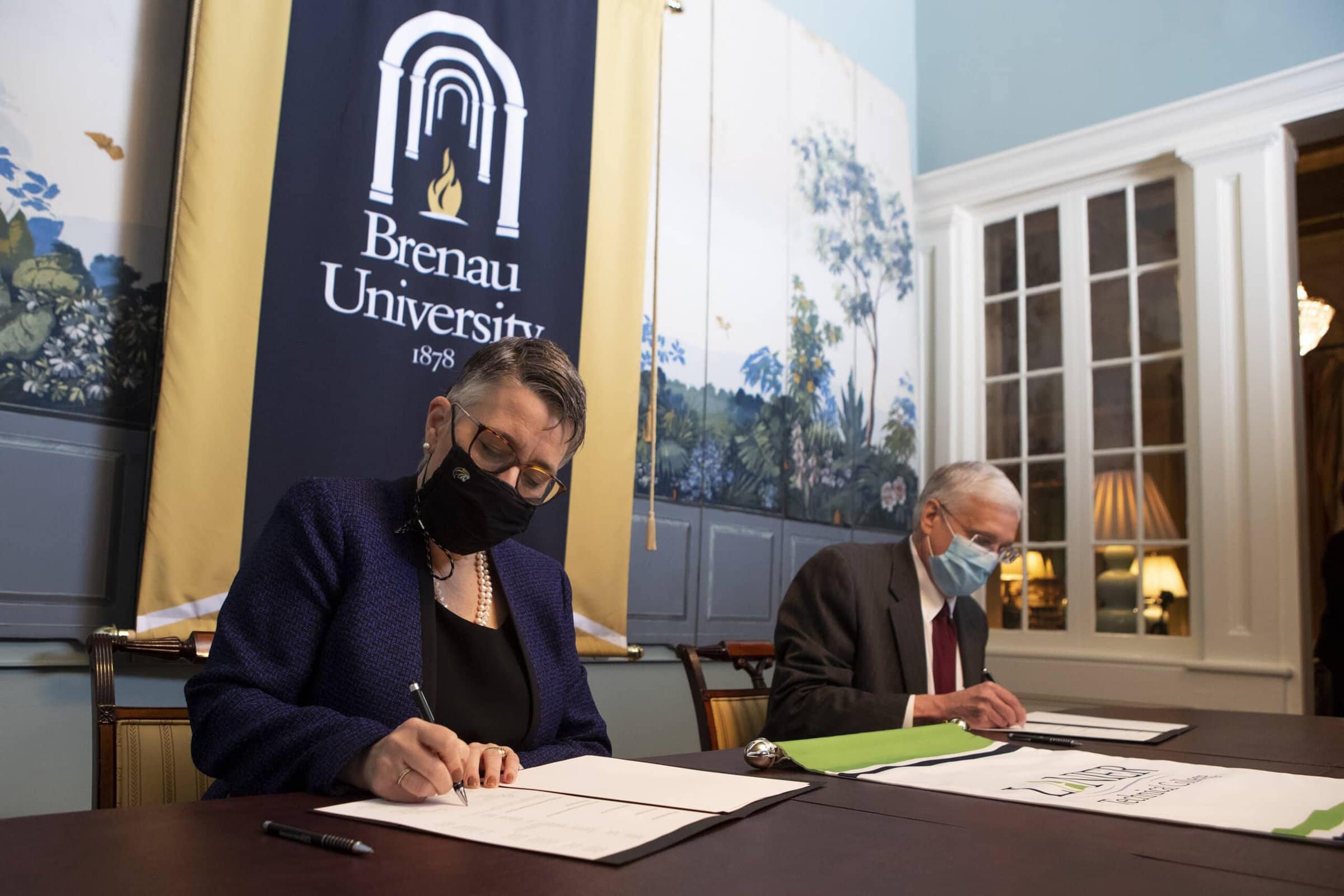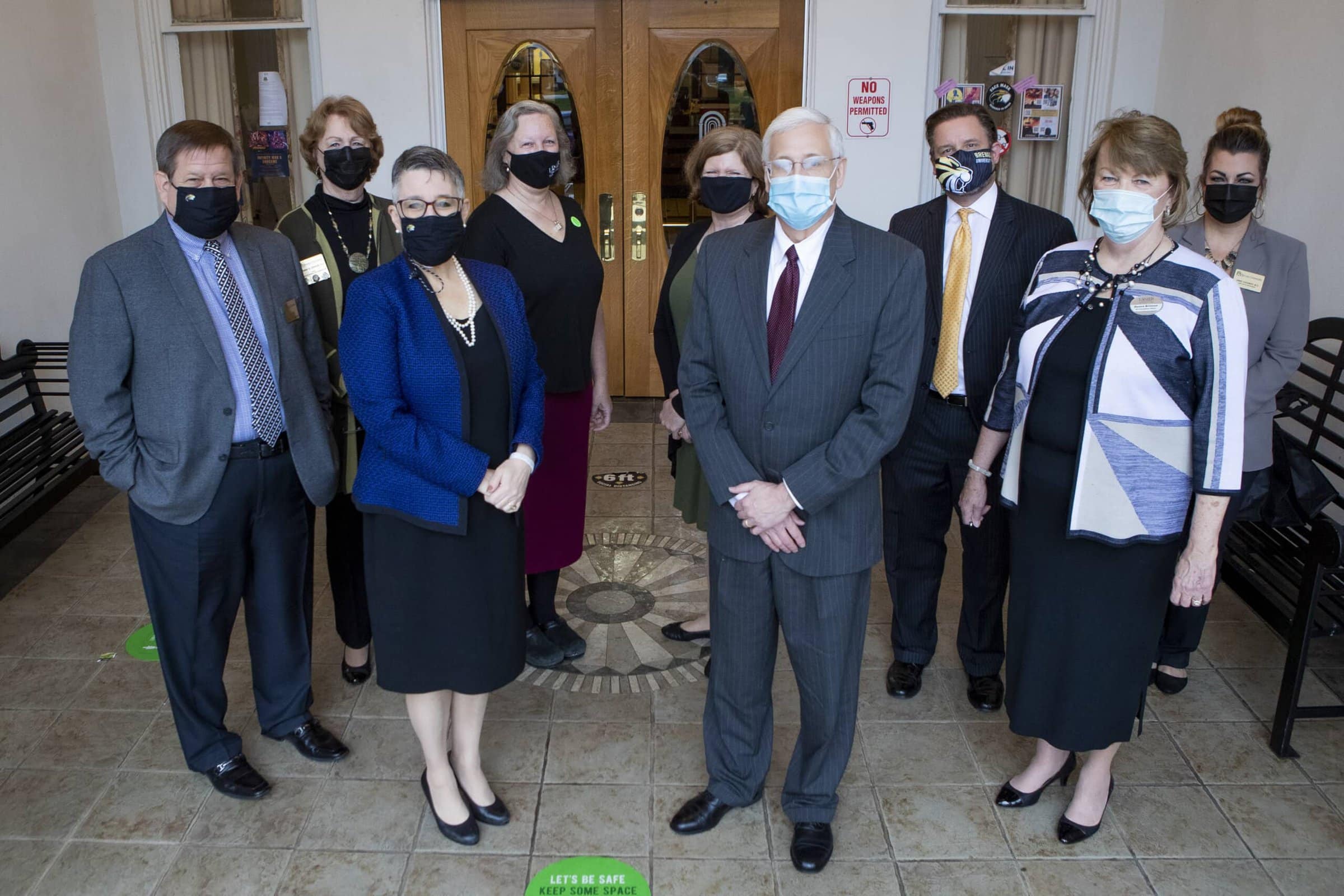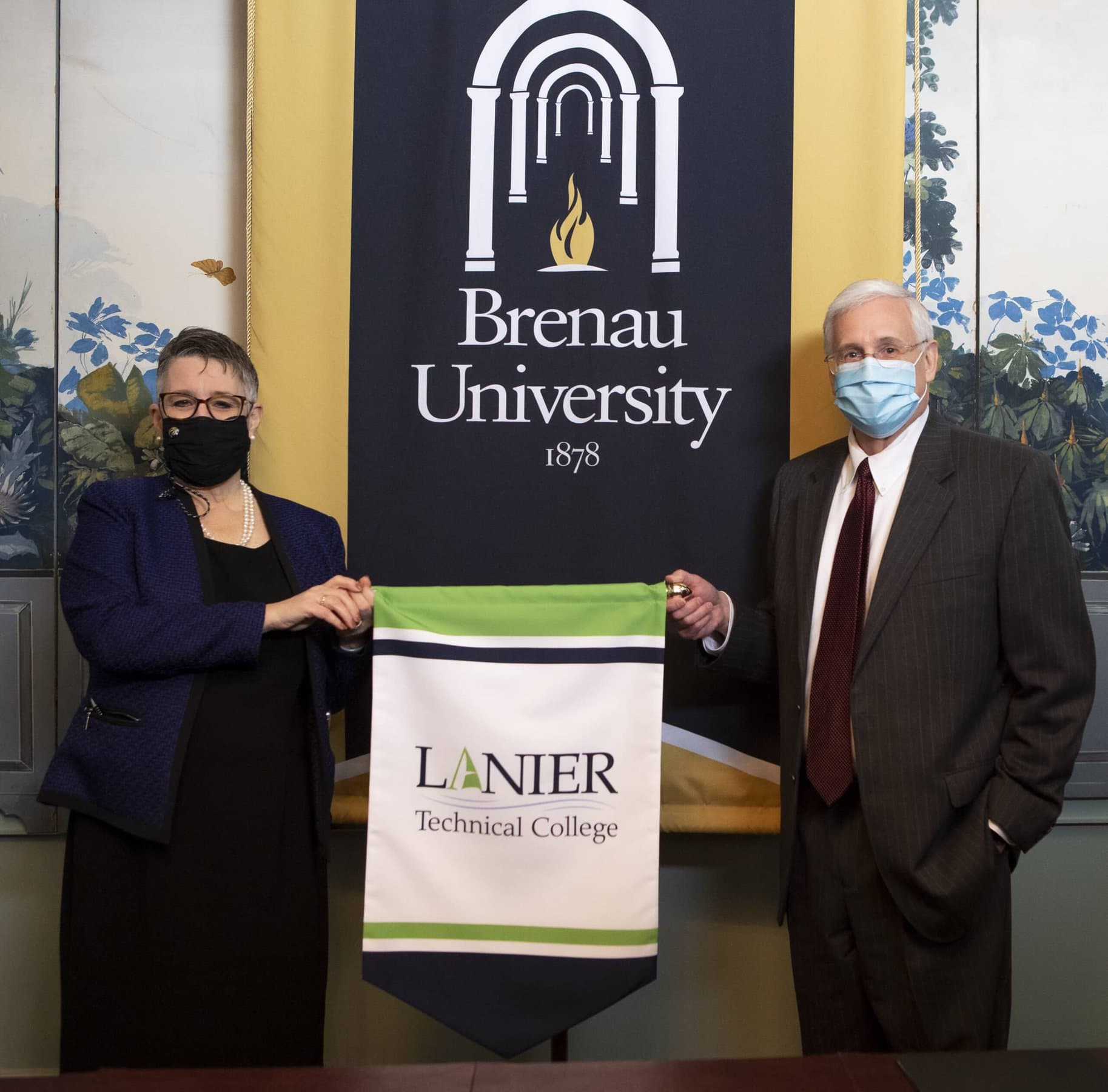

Brenau University and Lanier Technical College signed a program articulation agreement on Thursday, March 18, in an effort to make it easier for Lanier students majoring in business to transfer to Brenau.
With the agreement, which starts in the fall of 2021, students in Lanier’s business management program can transfer to Brenau to earn their bachelor’s in business administration or organizational leadership. The credit hours students have earned at Lanier Tech will now easily transfer to Brenau. Nathan Goss, assistant vice president for recruiting at Brenau, said the agreement has been in the works for about a year.
“It really is another pathway for deserving students who have a desire to earn their bachelor’s degree to stay within their community,” Goss said. “This process will make it much more efficient and will streamline the application process.”
Pennie Eddy, chair of undergraduate business programs at Brenau, played an important role in this agreement. Eddy worked at Lanier Tech and in the technical school system for several years, along with working part-time at Brenau. About six years ago, while employed by both Brenau and Lanier Tech, Eddy worked to create articulation agreements between the two schools.
“I started inviting Brenau accounting instructors to Lanier Tech for different meetings,” Eddy said. “They would invite the students from Lanier Tech to Brenau for different accounting functions. We started building this bridge.”
That bridge helped set the groundwork for the program agreement. After Goss spoke with Donna Brinson, vice president for academic affairs at Lanier Tech, at an event last year, the two decided to begin work on the program articulation agreement and Brenau formed a committee to hammer out the details.

“This articulation with Brenau provides an excellent opportunity for the graduates of Lanier Technical College’s Business Management associate’s degree program to transfer to Brenau University and earn a bachelor’s,” said Tim McDonald, interim president at Lanier Tech and a graduate of Brenau’s MBA program. “Additionally, this agreement demonstrates the commitment both institutions have made to provide seamless educational opportunities to the citizens of our community. We look forward to the continued growth of our relationship with Brenau.”
Brenau’s Registrar and Director of Student Records Barbara Wilson was instrumental in ensuring all the classes were comparable. With this agreement, students in the business management or organizational leadership programs can bring over 50 credits to Brenau, which is nearly two full years of coursework.
“It’s a win for both universities and especially for the students,” Wilson said. “We are all really hopeful that the students can find an easier pathway to getting a bachelor’s degree.”
 While this articulation agreement is with Lanier Tech and written specifically for that institution, students from any of the 22 technical colleges in Georgia will be able to transfer their credits to Brenau University, provided the technical college has a program similar to that at Lanier Tech. A few minor changes may occur in order to get the classes in sync.
While this articulation agreement is with Lanier Tech and written specifically for that institution, students from any of the 22 technical colleges in Georgia will be able to transfer their credits to Brenau University, provided the technical college has a program similar to that at Lanier Tech. A few minor changes may occur in order to get the classes in sync.
“This agreement with Lanier Tech is a major achievement,” said Suzanne Erickson, dean of Brenau’s College of Business and Communication. “Pennie Eddy knows firsthand the curriculum on both sides, and she saw how few credits the four-year colleges were accepting from the technical schools. This is a huge benefit to the Technical College System of Georgia students and will hopefully provide a pipeline for many to their bachelors degrees.”
Though this is the first agreement, the two institutions already are working on others. Chair of Interior Design Jill DeMarotta at Brenau is currently planning an agreement for the interior design program.
“I am so proud of the hard work done by our faculty and staff to get this articulation agreement in motion,” said Brenau President Anne Skleder. “This is only the beginning of what we hope will be a long partnership with Lanier Tech and will lead to similar agreements with technical institutions across the state.”

